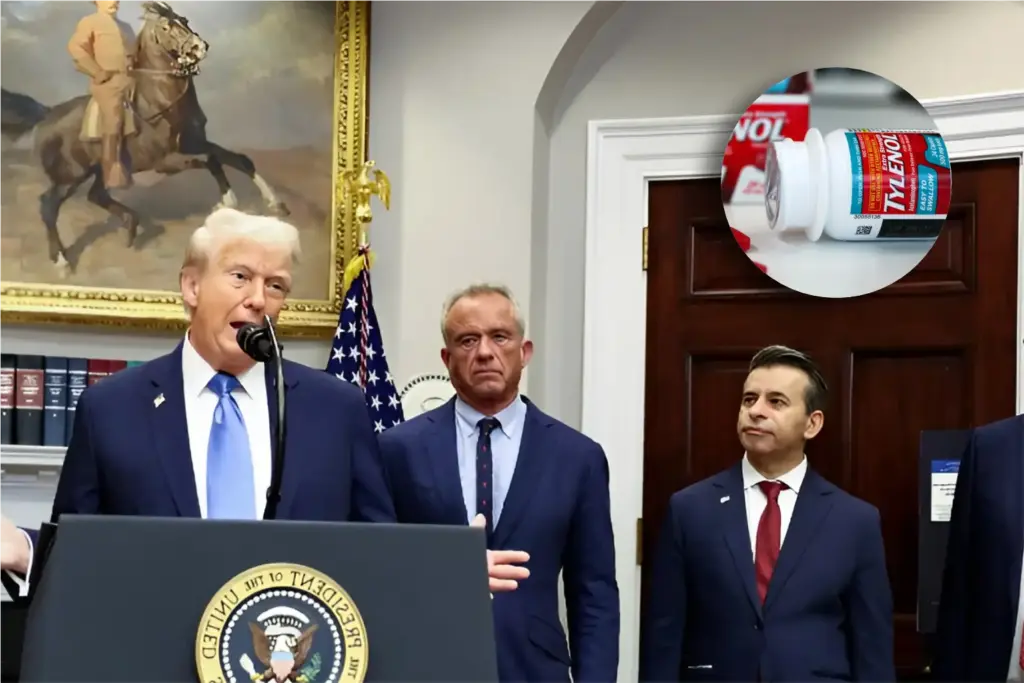
Donald Trump and autism: At a White House briefing on Monday, President Donald Trump suggested that taking acetaminophen (sold as Tylenol) during pregnancy and giving children routine vaccines could be tied to autism, a position at odds with decades of medical research. He urged expectant mothers to avoid the pain reliever and encouraged parents to alter standard shot schedules, including delaying the hepatitis B vaccine and splitting the measles–mumps–rubella dose into separate injections.
Trump, who acknowledged he is not a physician, spoke alongside Health and Human Services Secretary Robert F. Kennedy Jr, a long-time vaccine critic. The administration also spotlighted leucovorin, a folate-related drug, as a potential therapy for some people with autism and said it would seek steps to increase availability.
Also Read | Paracetamol use in pregnancy linked to higher risk of autism, ADHD in children: Study
Medical organisations and researchers moved quickly to rebut the remarks. Major paediatric and obstetric groups reiterated that routine childhood vaccines do not cause autism and remain essential to preventing serious disease. They also noted that acetaminophen is considered appropriate in pregnancy when used as directed and that current evidence does not support a causal link with autism or other neurodevelopmental conditions.
Market reaction to the comments was swift. Shares of Kenvue, which makes Tylenol, fell sharply during the trading day before recovering part of their losses later. Analysts attributed the volatility to the policy headlines rather than any new scientific data.
Scientists stressed that the administration’s proposals rest on associations that have not been proven to cause autism. Large population studies have repeatedly found no causal tie between vaccination and autism. Research on prenatal acetaminophen exposure has produced mixed signals in observational analyses, but leading investigators say the data remain insufficient to establish cause and effect. Small trials of leucovorin have shown limited promise for specific conditions, and experts say larger, well-controlled studies are needed.
Public-health leaders warned that the White House messaging could erode confidence in evidence-based guidance. They urged families to consult clinicians, follow national immunisation schedules, and use medications during pregnancy at the lowest effective dose for the shortest necessary time.








